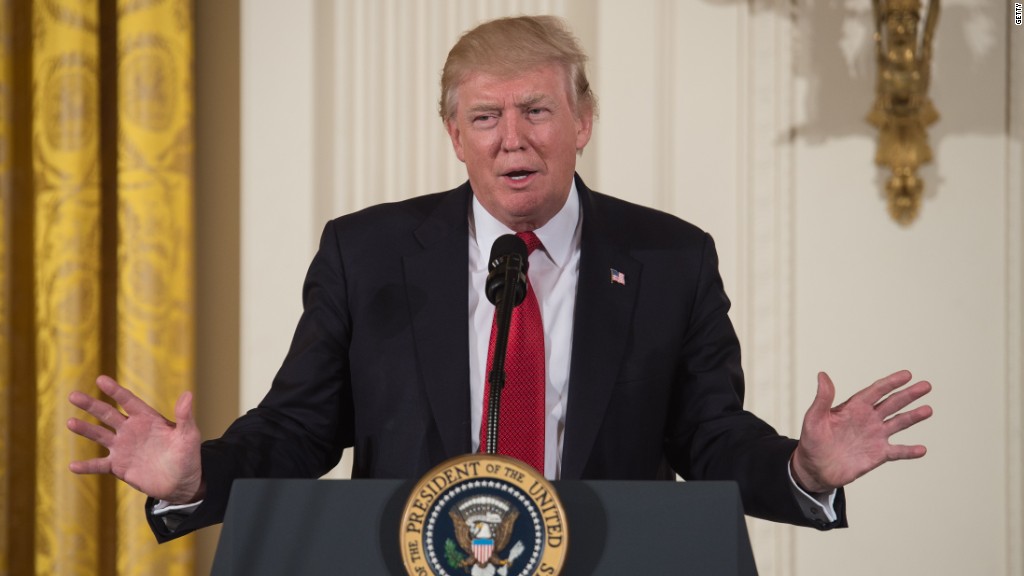Trump Advisors Wage War on Bank Regulations: A Deep Dive into the FDIC Proposals
Remember the 2008 financial crisis? The images of collapsing banks, panicked investors, and government bailouts are still fresh in many people’s minds. That crisis led to a wave of new regulations aimed at preventing a repeat performance. But now, a powerful group – advisors closely tied to the Trump administration – are pushing back, arguing that these regulations are stifling economic growth. Their battleground? Proposed changes to the Federal Deposit Insurance Corporation (FDIC) rules. This isn’t just some wonky debate happening behind closed doors; it’s a fight that could dramatically reshape the American banking landscape and impact your wallet. Let’s dive in.

Understanding the Stakes: Why Bank Regulations Matter (and Why Some Want to Roll Them Back)
Before we get into the specifics of the FDIC proposals and the Trump-aligned advisors challenging them, let’s establish the context. Bank regulations, while sometimes seen as bureaucratic hurdles, serve a crucial purpose: protecting consumers and maintaining the stability of the financial system. Think of it like this: your money in the bank is insured up to a certain amount by the FDIC. This insurance is funded by premiums paid by banks. Regulations ensure that banks operate responsibly, minimizing the risk of failures that could deplete the FDIC’s insurance fund and leave depositors in the lurch.
The regulations implemented after 2008 focused on several key areas:
- Increased Capital Requirements: Banks are required to hold more capital (money they own) as a buffer against losses. This makes them less likely to fail during economic downturns.
- Stress Tests: Regular stress tests simulate economic crises to assess banks’ resilience. This allows regulators to identify weaknesses and take corrective action before problems escalate.
- Liquidity Requirements: Banks must maintain sufficient liquid assets (easily convertible to cash) to meet their obligations, preventing a run on the bank.
- Derivatives Regulation: The complex world of derivatives (financial contracts) is now subject to stricter oversight to reduce systemic risk.

Now, enter the Trump advisors. Their argument is that these regulations are overly burdensome, hindering lending and stifling economic growth. They contend that the increased capital requirements are forcing banks to be overly cautious, reducing lending to businesses and individuals, thus hindering job creation and economic expansion. They point to the post-2008 recovery as evidence that the regulations may be too stringent. Their proposed changes often center around loosening these requirements, potentially making the banking system more profitable but also arguably riskier.

The FDIC Proposals: A Closer Look at the Battleground
The FDIC, as the guarantor of bank deposits, is a key player in this debate. Recent FDIC proposals have become the focal point of this regulatory tug-of-war. While the specifics of these proposals can be complex, the core issues often revolve around:
- Risk-Based Capital Requirements: The current system uses a risk-based approach, meaning that banks holding riskier assets are required to hold more capital. Some proposals suggest simplifying this system, potentially reducing capital requirements for certain types of assets. The argument is that this would free up capital for lending, but critics worry it could increase systemic risk.
- Stress Testing Methodology: The methodology used for stress tests is constantly being refined. Proposals to alter the methodology could affect the perceived riskiness of banks and, consequently, their capital requirements. A less stringent methodology could lead to lower capital requirements, but also potentially mask underlying vulnerabilities.
- Insurance Premiums: The premiums banks pay to the FDIC fund the insurance program. Proposals to adjust these premiums could have significant implications for bank profitability and the overall stability of the insurance fund. Lower premiums could benefit banks, but might also weaken the fund’s ability to handle future crises.

The Trump Advisors’ Influence: Who Are They and What’s Their Agenda?
Several advisors closely associated with the Trump administration have been actively involved in advocating for deregulation of the financial sector. These individuals often come from backgrounds in finance and have strong ties to the industry. Their arguments generally align with a philosophy of minimal government intervention and a belief that market forces should be allowed to operate freely. While they may present their proposals as promoting economic growth, critics argue that their actions prioritize the interests of the financial industry over the broader public good.

It’s important to note that the influence of these advisors extends beyond direct lobbying. Their public statements, think tank affiliations, and connections to media outlets help shape the narrative surrounding bank regulation. This influence is amplified by the fact that many of these individuals hold significant sway within conservative political circles. Their arguments often resonate with those who believe that excessive regulation hinders economic progress.
The Counterarguments: Why Maintaining Strong Regulations is Crucial
The arguments in favor of maintaining strong bank regulations are equally compelling. Proponents argue that loosening regulations could lead to a repeat of the 2008 crisis, with potentially devastating consequences for the economy and the average American. They point to the significant social and economic costs of the last financial crisis, including job losses, home foreclosures, and a prolonged recession. These costs far outweigh any potential short-term gains from deregulation.
Furthermore, critics argue that the focus on short-term economic gains ignores the long-term risks associated with a less regulated banking system. A system prone to instability could lead to greater uncertainty, discouraging investment and hindering economic growth in the long run. The argument is that a strong regulatory framework is not an impediment to growth but rather a crucial foundation for sustainable economic prosperity.